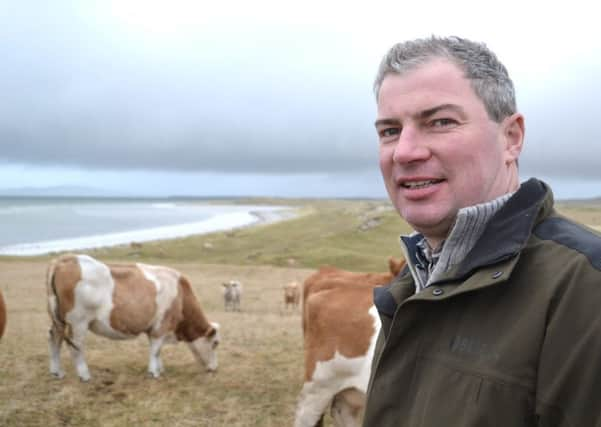Nominations for candidates to Crofting Commission


Scotland’s 16,000 crofters will be able to put forward candidates or stand themselves for election to the Commission’s board as commissioners.
The Commission regulates and promotes the interests of crofting.
Advertisement
Hide AdAdvertisement
Hide AdMarch’s postal election is to elect commissioners from the six crofting constituencies: East Highlands, Orkney and Caithness, Shetland, South West Highlands, West Highlands and Western Isles.
Cabinet Secretary for Rural Economy and Connectivity Fergus Ewing said: “The Scottish Government wants to ensure a strong and vibrant future for crofting.
“The Crofting Commission is crucial to this, through its work on developing crofting, being an effective regulator and providing a voice for the concerns of crofters.
“It is vital to have a Commission made up of people who represent and reflect the interests and diversity of Scotland’s crofting community.
Advertisement
Hide AdAdvertisement
Hide Ad“To achieve that, we need people with a commitment to ensuring a long term future for crofting to stand for election or to nominate people they believe have the qualities to be an effective commissioner. It’s also important all crofters make their voices heard by voting in March’s election.”
Talking about the importance of crofting and the elections North Uist crofter Donald Macdonald, said: “Working together with neighbouring crofts is an important part of how we farm. At calving time, for example, we always phone each other if there’s any trouble and try our best to look out for each other when out and about.
“Crofting is important to Scotland for a number of reasons. We produce a lot of stock that mainland farms rely on.
“This creates a network of other job types, all of which are underpinned by this relationship, helping to strengthen employment and support the local economy.
Advertisement
Hide AdAdvertisement
Hide Ad“At the same time, crofting has a significant bearing on maintaining the local population, communities, and townships by giving people a place to live and work.
“Further, what a lot of people often don’t realise is the positive impact that crofting has on the local ecology; grazing, ploughing, and our livestock play an important role in maintaining the habitats of a lot of wildlife, so any decisions we aren’t able to influence will have a knock-on effect.
“The Crofting Commission plays a vital role in regulating our industry, providing impartial oversight and independent monitoring. It gives crofters a voice and platform through which we can stand up for ourselves, raise any concerns and make sure our interests are not overlooked, which is why the Crofting Commission elections are so important to us.
“Crofting is evolving so it is important that we are able to influence any changes to the way we are regulated from above, particularly with all the uncertainty and concern around Brexit and CAP reform.
Advertisement
Hide AdAdvertisement
Hide Ad“My hope is that we will develop a vibrant network of townships and thriving crofting. But to make that happen we have to be able to guarantee an income for crofters and help the next generation continue to work that land and develop larger crofts more suited to the economic demands of modern times.
“Crofting is not just about livestock, many people have crofts for forestry and tourism, making the most of the land they have, so helping crofters be innovative about the way they grow is important.”
Crofters can get a nomination pack from their local council returning officer.
The deadline for returning nominations is Thursday 26 January and the deadline for returning ballot papers is Thursday 16 March. Results will be announced on 17 March.